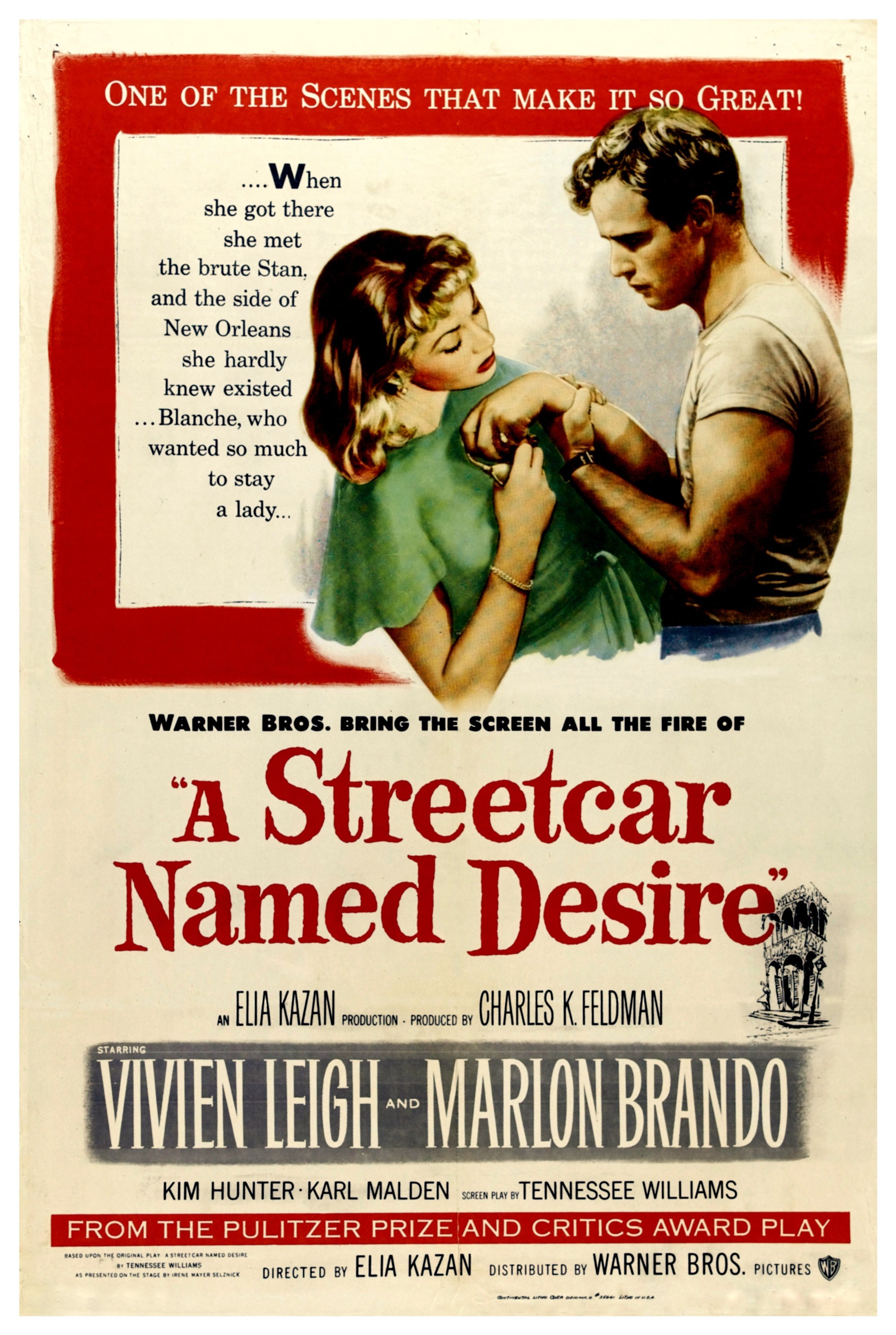About this Play

image is a still from the original Broadway production, 1947
The Premise
(WARNING: mention of domestic violence and sexual assault) Blanche DuBois is a down-on-her-luck former Southern Belle who loses her home, Belle Reve, due to financial losses. She is forced to move in with her younger sister, Stella, and Stella's husband Stanley. Stanley and Blanche immediately don't get along: Stella thinks he's coarse and harsh, and Stanley thinks she's stuck-up and selfish. Stanley also beats Stella, something Blanche finds reprehensible. Over time, it becomes clear that Blanche is hiding something, and Stanley picks up the scent and tries to figure it out. Eventually, the two physically fight and Stanley sexually assaults Blanche, and she is sent to a mental institution not long after. In the original play, Stella sticks with her husband despite evreything, but in the popular 1951 film, she begins to consider leaving her husband as the story ends.
Blanche is often considered one of the English literature's most complex female characters. She is indeed selfish and snobbish, and it is revealed she lost her job as a teacher due to grooming a student, but still she has moments of sympathy, especially when she is assaulted by Stanley. The world of Streetcar is one of black and grey morality, where no one character truly sticks out as 'good', and this is reflected in its complex protagonist.

image is a poster from the 1951 film
The History of the Play
A Streetcar Named Desire premiered in early November of 1947, and quickly moved to Broadway, premiering at the Ethel Barrymore Theatre on December 3 of that year. (Tennessee Williams based the play on many of his own experiences- you can read more about this in the "About the Playwright" tab.) Less well-known actors were cast in the roles- most notably, Marlon Brando (a complete nobody at the time) as Stanley Kowalski. Audiences loved the show and the performances, despite its depressing and disturbing plot, and the show developed into a full run.
It was quickly decided that the play ought to be made into a movie, and in 1951 A Streetcar Named Desire, the film, was released. It starred Vivien Leigh as Blanche, and Marlon Brando reprised his role as Stanley. This is the version of the play most familiar to popular culture. It went on to win four Oscars, and it was selected for preservation by the Library of Congress in 1999.
Streetcar has had a major influence on popular culture. In addition to the film, it has inspired an opera, two ballets, prequels, two made-for-TV movies, and countless snippets of music and appearances in other films and television. Younger audiences might recognize Streetcar from the Simpsons episode "A Streetcar Named Marge", which pokes fun at it by having Marge Simpson star as Blanche in a musical version of the show: